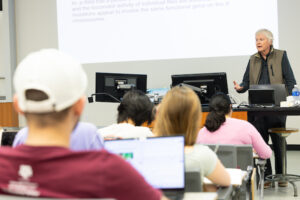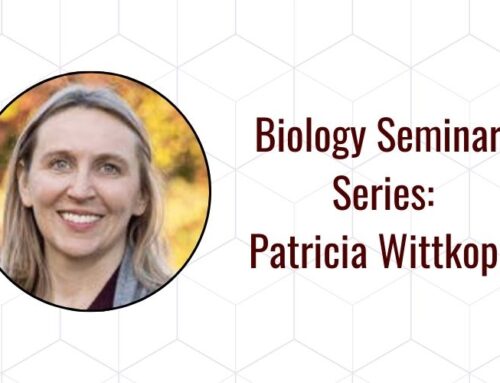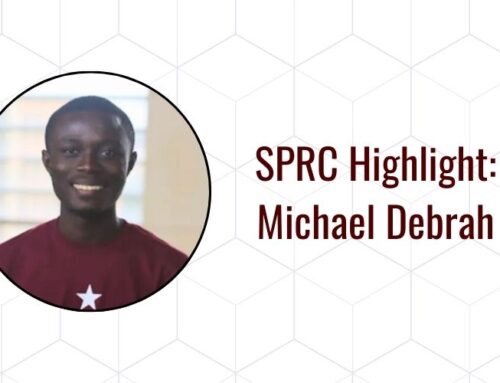Transforming Education: The Remarkable Growth and Impact of the Biological Clocks Course at Texas A&M
By: TAMU Biology
 The course Biological Clocks taught by Dr. Deb Bell Pedersen, Distinguished Professor of Biology at Texas A&M University has rapidly grown into a cornerstone of undergraduate and graduate education, offering students unparalleled access to world-class instruction. Since its inaugural offering in spring 2022, the course has expanded from 31 students to over 150 undergraduates and 6 graduate students . This growth reflects the increasing recognition of circadian biology as a critical field of study and the course’s ability to captivate students with its cutting-edge content.
The course Biological Clocks taught by Dr. Deb Bell Pedersen, Distinguished Professor of Biology at Texas A&M University has rapidly grown into a cornerstone of undergraduate and graduate education, offering students unparalleled access to world-class instruction. Since its inaugural offering in spring 2022, the course has expanded from 31 students to over 150 undergraduates and 6 graduate students . This growth reflects the increasing recognition of circadian biology as a critical field of study and the course’s ability to captivate students with its cutting-edge content.
Dr. Bell-Pedersen, a renowned leader in circadian biology for her groundbreaking discoveries on the role of protein translation in establishing 24-hour rhythms in Neurospora crassa, also serves as director of the Center for Biological Clocks Research (CBCR), which unites faculty from across Texas A&M.
The course’s remarkable expansion has been fueled by its ability to connect foundational concepts in molecular, cellular, and organismal biology with real-world applications. From understanding how circadian rhythms influence human health and sleep to exploring the timing of medications to maximize efficacy, students gain insights with immediate practical value. Many, including those planning to pursue medical school, veterinary school, and graduate degrees are drawn to the course’s exploration of how the body’s internal clock impacts physical and mental health, and the potential to learn about the emerging fields of Circadian Medicine. This relevance, combined with the breadth of organisms studied—from bacteria to humans—has positioned the course as a transformative academic experience, driving its dramatic increase in enrollment.

Nobel Laureate Mike Young Teaches Biological Clocks Lecture
Central to the course’s appeal is the inclusion of guest lectures from prominent figures in the field. Students have the unique opportunity to learn from Texas A&M Biology faculty including Wanhe Li, Jeff Jones, and Shogo Sato, as well as Dean Mark Zoran. A highlight of the course is the involvement of Nobel Laureate Dr. Mike Young from Rockefeller University who is currently the Tim Hall Hagler Fellow in Department of Biology at Texas A&M. Dr. Young has delivered lectures multiple times, offering students an extraordinary chance to learn from one of the most celebrated scientists in circadian biology. These guest contributions provide students with diverse perspectives, enriching their understanding and underscoring the course’s status as a premier educational offering at Texas A&M.
The course’s rapid growth has also inspired a surge in research interest among students. The course has applies multiple high-impact teaching methods allowing students to read and discuss classic and recent original research articles in a large-class format. Several undergraduates have pursued research opportunities circadian biology across the institution. Graduate students from a variety of disciplines have found the course instrumental in advancing their research, including the effects of light on recovery from veterinary surgery.
The impact of this course highlights how students at Texas A&M University receive world-class instruction where they work with closely with international leaders.





